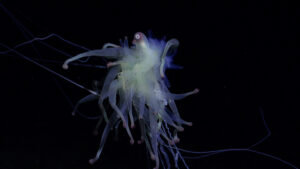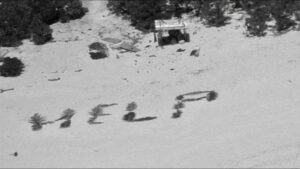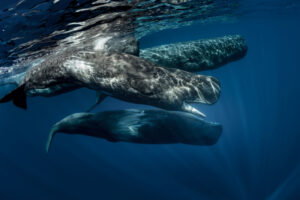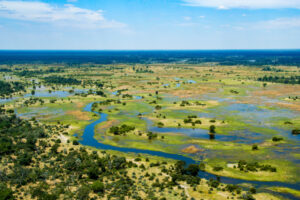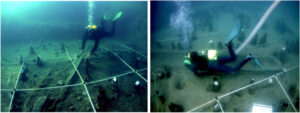Richard Kohler, 53, is attempting to kayak alone across the Southern Atlantic Ocean from Cape Town, South Africa to Salvador, Brazil. He began the unsupported 7,000km journey on December 18. If he completes it, it will be longest solo ocean kayak ever. The current record is held by the late Aleksander Doba, who paddled 6,558km from Portugal to Florida in 2014.
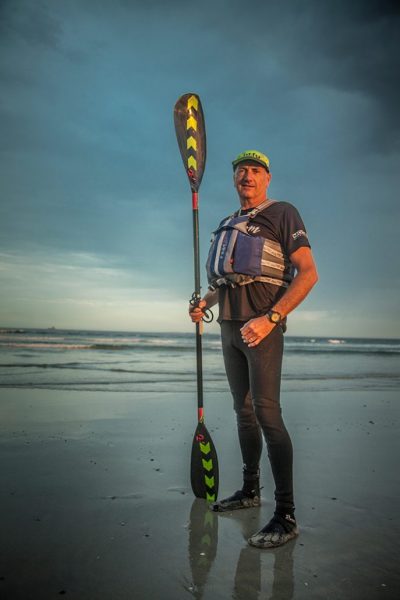
Photo: www.richardkohler.co.za
Due to the nature of the challenge, Kohler is not using a traditional kayak. Instead, he is paddling a specially constructed vessel, Osiyeza, which is eight metres long, one metre wide, and includes an enclosed sleeping area.
To make the vessel as light as possible, its frame is carbon fibre. Kohler hopes that this will make it easier to maneuver. Perhaps preempting questions from traditional paddlers, he frankly admitted to CapeTalk, a South African radio station, “The term kayak is just because I am using a pair of double-sided paddles to propel myself.”
Kohler aims to cover the distance in 60 to 80 days but believes that in the right conditions, he could complete it even more quickly. He plans to paddle for 15 hours each day and average roughly 100km. His kayak weighs 450kg, including 90 kilograms of food.

Photo: @richardkohleradventures
Aborted first try after 16 days
Kohler thinks the greatest difficulty will be the physical and mental strain. Though other dangers exist, including crossing shipping lanes and unpredictable weather, he is confident that he will manage. His vessel has state-of-the-art communication and AIS systems. His route also follows the trade winds — he admits he couldn’t make the crossing paddling against the wind.
He first attempted the expedition in December 2021 but had to abandon the crossing after 16 days. On day eight, he discovered that the wiring that powered his main solar panels had corroded and his backup solar panels were not working. These powered his desalinator and communication systems.
When he was unable to fix the problem, he re-routed and made landfall in Namibia after five days of hectic paddling.

Photo: @richardkohleradventures
Early seasickness
Before the technical problem, he was on track to complete the 7,000km in less than 70 days. He was covering 135km each day. Other than three days of seasickness, everything had been going perfectly.
His second attempt has so far mirrored his first. The first few days were wet, cold, and riddled with seasickness. It was so bad that he ate nothing for the first 48 hours, leaving him “shattered and weak”. Since then, he has been able to keep food down, and his energy levels have crept back up.

The route so far. Image: www.richardkohler.co.za
He has now picked up a good current with a strong tailwind. Christmas at sea brought mixed emotions, Kohler opened four small gifts from friends and family, then spoke to his wife and mother. Once by himself, he started to feel a little low.
Kohler is not new to ocean sports. He was a professional yachtsman for 20 years and had completed 11 ocean crossings. Though originally a sailor, he has a penchant for all water sports. In the early 2000s, he began kayaking regularly. In 2013, he became the first person to solo kayak the 3,300km length of the South African coastline. Then in 2019, he completed a solo SUP of South Africa’s Breede River. A year later, he kayaked the same river from source to sea in 38 hours.
Until now, his ocean crossings have always been with other people. For years though, he dreamed of crossing an ocean by himself. “I’d always been keen to do a solo trans-Atlantic [yacht] race but never got a chance when I was sailing,” he explains on his website. “Then I changed to kayaking but still had the urge to go across the ocean by myself.”

